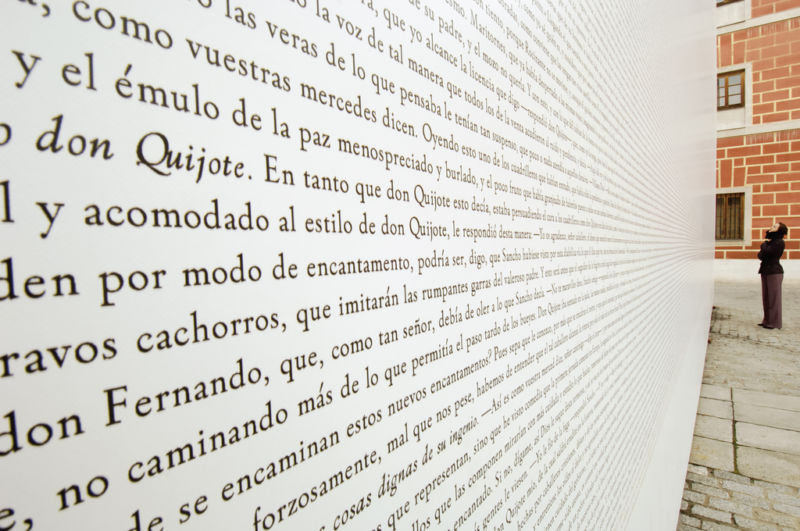
What's the secret sauce? Amazingly, the use of a pause button to temporarily stop the lesson.
The Barcelona-based teacher, Mihalis Eleftheriou, runs a website known as "Language Transfer," where he offers free online courses in French, Turkish, Greek, and many other languages. The site has no advertising, and he told Ars recently that about 400 people per month donate a collective $1,800 to help defray ongoing costs.
"I'm not a company, I'm not anything, I'm just a guy, a poor guy," he said.
A Virginia attorney, Christopher Foley, representing publisher Hodder & Stoughton, recently demanded that Eleftheriou halt any publication of audio lessons in the United States or face a potential lawsuit.
Hodder & Stoughton claims to represent the "exclusive licensee" of a patent originally granted to a now-deceased French teacher, Michel Thomas. The Polish immigrant, who lived for decades in the United States, claimed that he could teach anyone the basics of a European language that had commonalities with English to anyone in "a matter of days or a week." He attracted numerous celebrity clients, including Woody Allen and Bill Murray.
Eleftheriou said that he was not "reproducing" Thomas' method, adding that "nothing else [is] as well thought-out" as Eleftheriou's own technique.
But however effective Thomas' teaching technique may or may not have been, it was not patentable, according to a scathing letter sent on July 2, 2018 by Daniel Nazer, an EFF attorney who is representing Eleftheriou.
Nazer wrote in his letter that, under a 2014 Supreme Court decision known as Alice Corp. v. CLS Bank, "an abstract idea does not become eligible for patent protection merely by being implemented on generic or conventional technology."
According to Thomas' patent filing itself, "the technique involves a process through which a student, for each of a set of expressions listens to a recorded expression in the home language, and then with a pause under control of the student, translates the expressions into the target language."
It goes on:
A pause button is provided to the target student on the machine in which the tape or recorded medium is played so that the student can initiate a pause after the initial statement of the expression in the home language. This gives the student time to think of his or her translation before proceeding. Indeed, the student can pause at any stage of the proceeding in order to maintain a personal pace without ever experiencing stress, strain or pressure.
Nazer excoriated the '358 patent, noting that the "use of a stop or pause button cannot save" it, adding that a pause button was "generic technology" that long predated the patent's issuance in 2003.
"Moreover, a student pausing a lesson at home is merely the learn-at-home equivalent of a student asking a teacher for an extra moment to solve a problem," he added.
Eleftheriou agreed.
"It's kind of ridiculous that they think that they can patent using the pause button," he said. "There [are] no grounds for this, and if [the publisher's] lawyers had listened to two minutes of my courses, they would have realized this."
Foley did not respond to Ars' multiple requests for comment.
reader comments
135